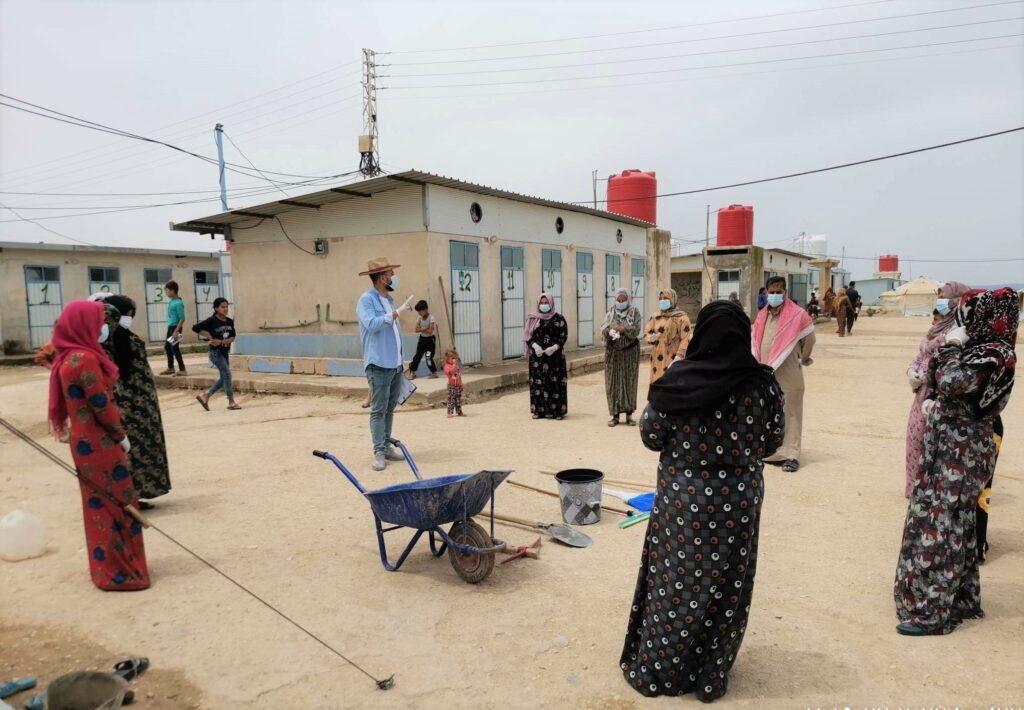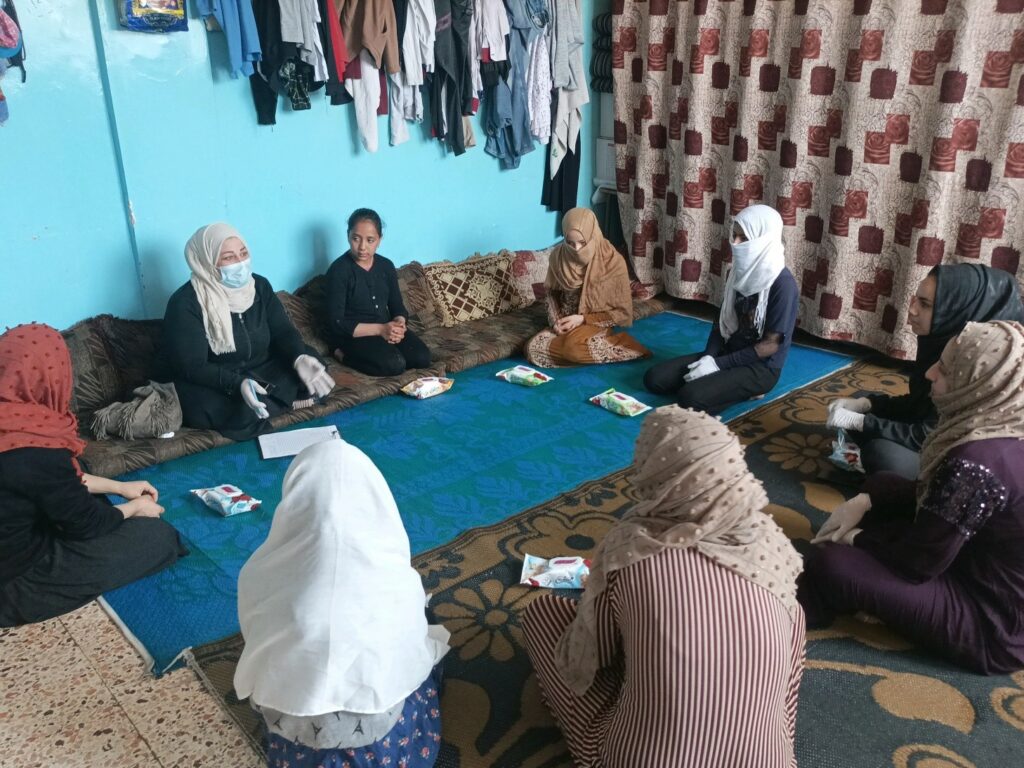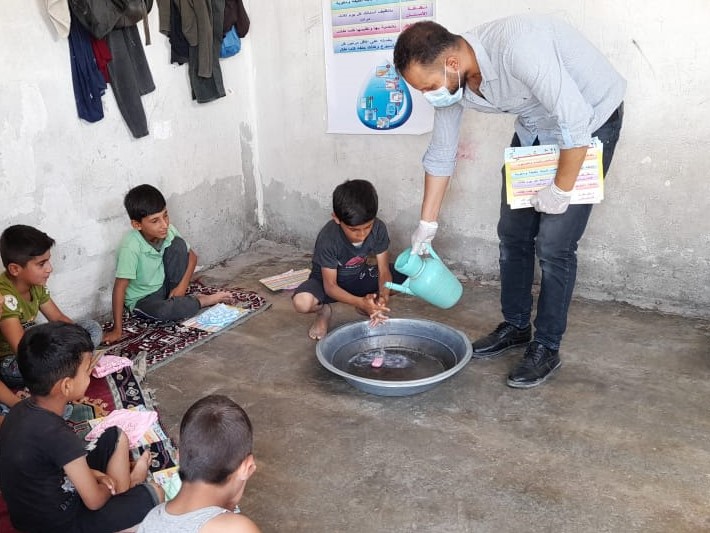In northeast Syria (NES), challenging living circumstances such as overcrowding and limited resources among displaced populations can make maintaining good health and hygiene difficult.

Blumont led community members in an environmental cleaning session in a displacement camp in northeast Syria.
We support displaced communities in collective centers by ensuring they have clean, hygienic living spaces. While one part of our team maintains sewage and solid waste systems, another part raises hygiene awareness, distributes personal protective equipment (PPE), and promotes keeping a clean environment to prevent disease.

Awareness sessions for displaced communities include learning about good hygiene and how to maintain a healthy environment.
During one of our awareness sessions, our team helped Khatib, a man displaced by conflict, identify a skin condition as the disease leishmaniasis–a potentially deadly infection contracted from sandflies. Khatib did not how serious his condition was; he said he hoped the scars would improve with time without any treatment. Once our team discussed the risks of his illness with him, we connected him with a local hospital for a medical consultation, where he received treatment. Khatib has since made a full recovery.
During another visit to families in the collective centers, we met Shujaa, 8, and his brother Abdel-Razzaq, 5, who both suffered from a skin disease that had led to hair loss. Their mother, disheartened by the boys’ condition, said, “I dreamed that my children would receive all the rights children should have–medical care and education–but we live in displacement and poverty, and this has led to my children getting a skin disease.”

Children at the collective centers in NES practiced how to properly wash their hands.
Fortunately, the skin condition was curable through good hygiene practices. The family learned about the importance of cleanliness for children, and how to properly wash hands and take a shower. A case worker helped the boys’ mother set up a treatment plan. With new hygiene kits and regular check-ins from the Blumont team, Shujaa and Abdel-Razzaq soon recovered.
These cases are not uncommon and easily preventable. To better the lives of displaced people across NES, our team is determined to raise hygiene awareness and prevent future cases of illness and disease.



